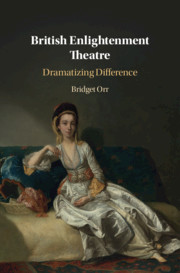Book contents
- British Enlightenment Theatre
- British Enlightenment Theatre
- Copyright page
- Dedication
- Contents
- Illustrations
- Acknowledgements
- Introduction: Dramatizing Enlightenment
- Chapter 1 Addison, Steele and Enlightened Sentiment
- Chapter 2 Fair Captives and Spiritual Dragooning
- Chapter 3 The Black Legend, Noble Savagery and Indigenous Voice
- Chapter 4 The Masonic Invention of Domestic Tragedy
- Chapter 5 Local Savagery
- Afterword
- Bibliography
- Index
Chapter 5 - Local Savagery
The Enlightenment Countryside on Stage
Published online by Cambridge University Press: 21 December 2019
- British Enlightenment Theatre
- British Enlightenment Theatre
- Copyright page
- Dedication
- Contents
- Illustrations
- Acknowledgements
- Introduction: Dramatizing Enlightenment
- Chapter 1 Addison, Steele and Enlightened Sentiment
- Chapter 2 Fair Captives and Spiritual Dragooning
- Chapter 3 The Black Legend, Noble Savagery and Indigenous Voice
- Chapter 4 The Masonic Invention of Domestic Tragedy
- Chapter 5 Local Savagery
- Afterword
- Bibliography
- Index
Summary
Often associated with urban institutions as coffeehouses and learned societies, the Enlightenment included fascination with outsiders – wild men, feral children, shipwrecked solitaries and local savages, or rustics. The long eighteenth-century theatre showcases this interest in “local savagery” in particular through a huge expansion in the number of plays set in spas, villages and country estates. These plays expand the collective vision of the nation, often celebrating the countryside as the green heart of England, the site of immemorial rights and model of social harmony. Just as frequently however, this pastoral image is threatened or subverted by Irish or labouring-class writers such as Robert Dodsley and Oliver Goldsmith, who highlight the local injustice and imperial violence that holds the rural (and national) hierarchy in place. This chapter maps rural dramaturgy from the Restoration forward to reveal these conflicting representational strategies, as Whigs and Tories fought to claim the nation’s heartland as the symbolic ground of political legitimacy and were followed by increasingly radical outliers whose view of rural society was considerably more critical.
Keywords
- Type
- Chapter
- Information
- British Enlightenment TheatreDramatizing Difference, pp. 188 - 247Publisher: Cambridge University PressPrint publication year: 2020

